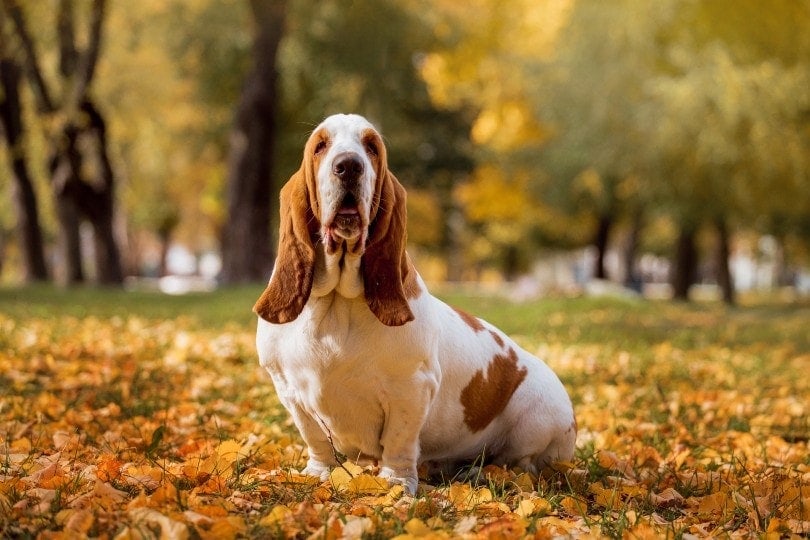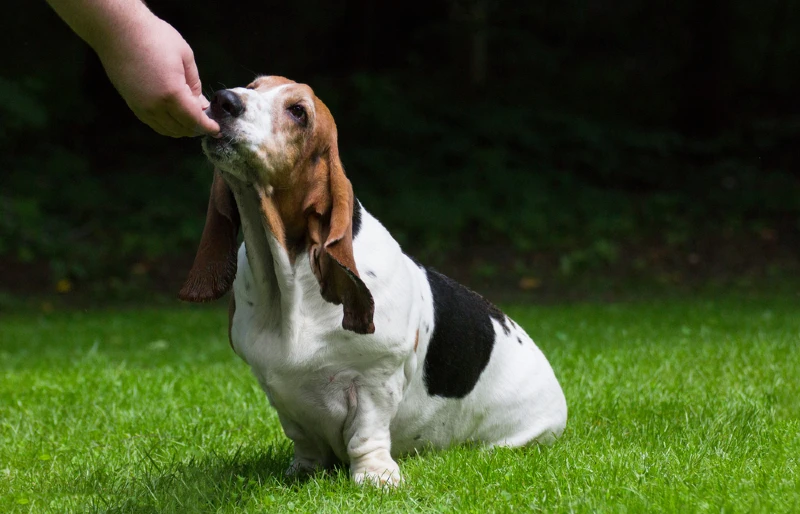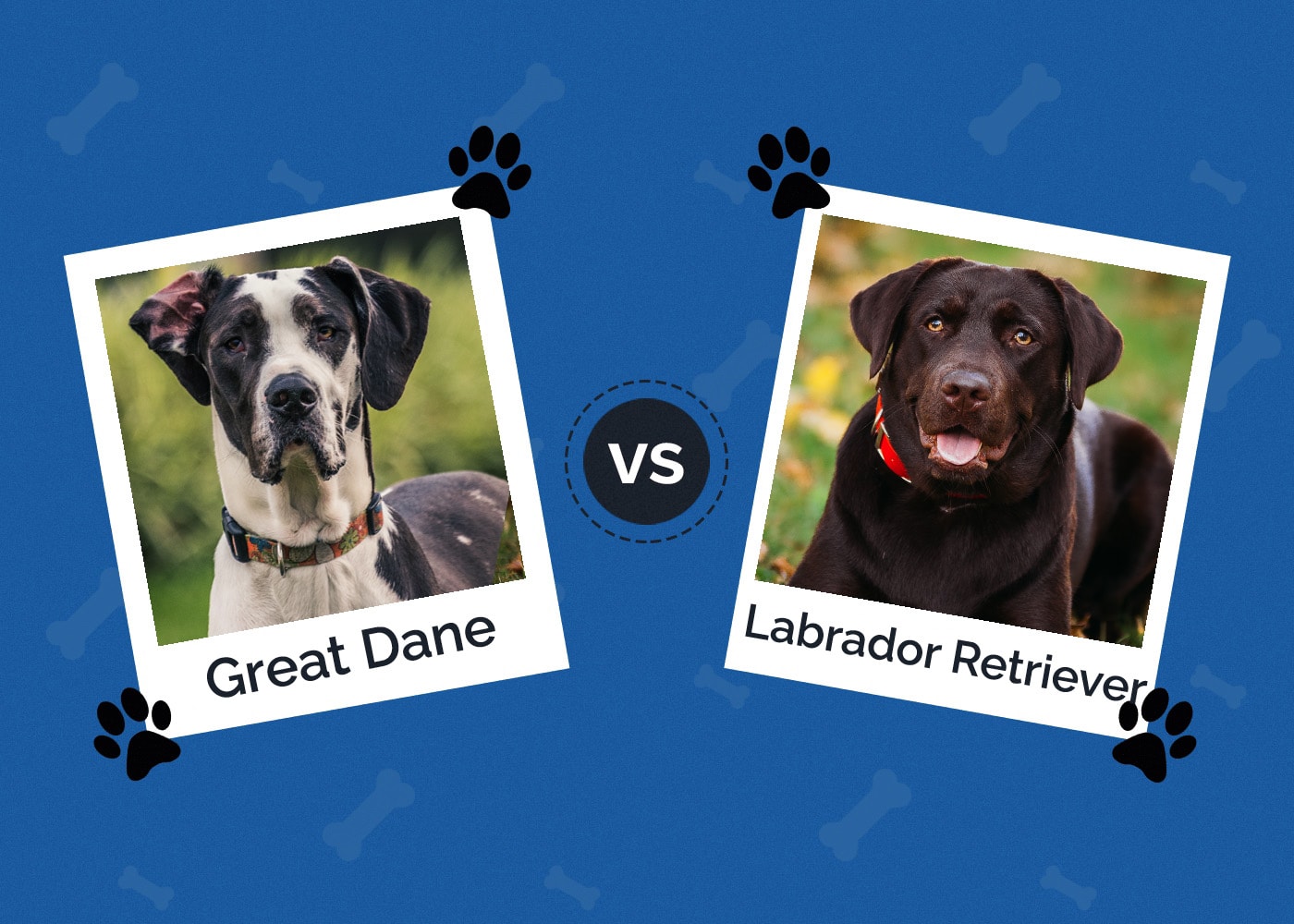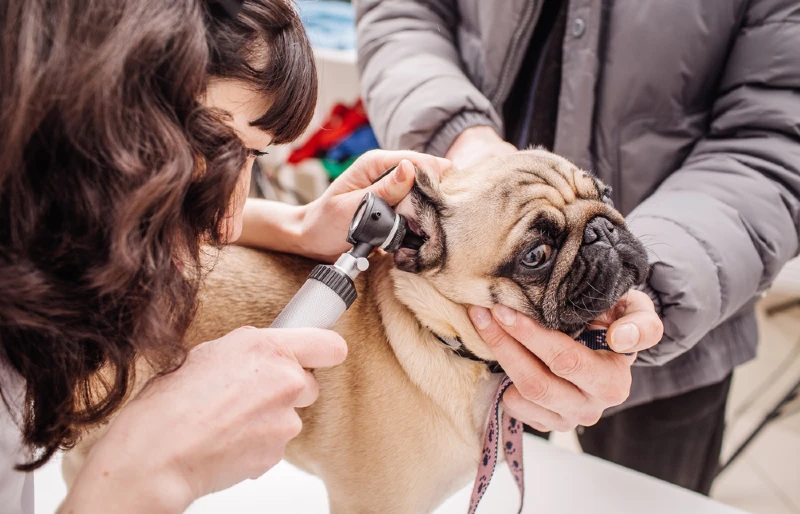Do Basset Hounds Howl a Lot? Reasons & Helpful Tips

Updated on

Basset Hounds have a fine pair of lungs and can get quite vocal. So, do they howl a lot? Yes! They are some of the most vocal dogs and often protest by baying, barking, or howling. These chatty chums are sometimes overly opinionated, especially when lonely, bored, or in need of mental or physical stimulation.
Is your Basset’s excessive howling driving you nuts? Read on for detailed information about the reasons behind this infamous behavior. We will also share some proven tips to get your Basset situation under control.
The 5 Reasons a Basset Hound Is Howling Nonstop
Basset Hounds have quite the vocal range and are some of the most melodious dogs. As close relatives of wolves, it’s in their nature to howl.
Baying or “little whines” like your dog is talking to itself and everything around it is normal and should not get you worked up. However, “big howls” mean your furry friend is calling for your immediate attention. It could be hungry, thirsty, bored, or simply craving a cuddle or petting.
Here are five possible reasons why your Basset howls uncontrollably.
1. Smell Distractions
Bassets have over 220 million olfactory receptors giving them a superior sense of smell. This makes them more likely to become agitated when they isolate a specific scent in their surroundings, triggering howling.
For this reason, Bassets need to engage in scent games to keep them engaged. You can minimize howling during awkward night hours by taking long walks with your pet and letting it sniff around to its heart’s content.

2. Noise Distractions
Basset Hounds were bred to be hunting dogs. As such, they are always alert and will let you know if they hear a strange sound in their surroundings. It could even be your neighbor driving into the apartment parking lot!
Howling in response to strange sounds is instinctual. If it becomes a nuisance, you can control it by buffering the noise source. Turn on the television or listen to some moderately high music. It also helps to block out visual triggers by closing your blinds or curtains.
It is possible to control the howling of Bassets, although you cannot stop it altogether. If you live in a neighborhood with noise restrictions, this dog breed may not be ideal for your family.
3. It Needs Your Attention or Affection
Bassets have a healthy set of lungs, and they utilize this to send signals when specific needs are unmet.
Your dog will call for your attention when in pain. Basset Hounds are prone to ailments like elbow dysplasia and Gastric Dilatation Volvulus (GDV), which can result in significant pain.
Loneliness and separation anxiety are also factors that could trigger howling as the dog seeks attention from the family. The best way to ensure you don’t encourage the behavior is to ignore your pet until it calms down. Once it’s quieter, praise it and provide the much-needed attention.
The only time to respond urgently to a howl is if your Basset needs a potty break, food, or water. Again, approach the situation calmly so as not to encourage your Basset to howl even louder the next time it has a need.

4. It Has Too Much Pent-Up Energy
As hunting dogs, Bassets are always full of energy, and howling can be a way of helping them release pent-up energy. Here are some of the best ways to tire up your whiny Basset.
- Go hiking or take a long walk
- Enroll them in a dog socialization program
- Organize a play date with another dog
- Play fetch or Frisbee
- Play with brain-stimulating toys (like a squeaky ball)
Just like in the wild, Bassets howl when celebrating catching or spotting prey. They may howl from one place until their perceived hunting partners arrive. Even spotting a strange animal or object can trigger howling, as the animal may feel threatened.
Generally, it’s in a Basset’s nature to howl when excited or happy. Think of it as an audible signal to bring the pack together. It is worth checking out if everything is okay in the yard.

 The 4 Tips on How to Stop Basset Hounds From Howling
The 4 Tips on How to Stop Basset Hounds From Howling
Howling is not always a terrible thing, but there are limits. If your dog is driving you crazy with the howling, there are steps you can take to mitigate this problem.
1. Visit the Veterinarian Often
One of the foremost reasons for howling is discomfort. It is crucial that you see a vet for regular checkups and when something is amiss. Your Basset could be in pain from injury or is suffering from bloating or other medical conditions.
Your animal should stop howling excessively upon receiving treatment.
2. Give It Attention
Basset Hounds are attention-seekers and will howl when denied company. Playing a few games with your dog can make them happier and less vocal. It will also alleviate separation anxiety and keep them calmer.
Furthermore, exercise for about sixty minutes daily to release pent-up energy. You want your furry friend to be too tired to care about howling.

3. Train With Commands
If you are a novice at keeping Bassets, the constant howling may tempt you to rethink your choice. The good news is that you can overcome this hurdle by training your dog to howl only at certain times or for predetermined reasons.
For instance, offer the dog a tasty treat and order it to enjoy it quietly. If you repeat this over several days, your dog will eventually yield to silence so it can enjoy treats.
4. Offer Distractions
Bassets can howl due to boredom, and this usually happens when nobody is home or when people are busy. You can offer toys to keep the dog occupied and therefore discourage howling when you are unavailable.
Laying out their favorite blanket can offer much-needed comfort when loneliness creeps in. Also, praise your pet when they stay quiet.

FAQs
Why Does My Basset Howl at Sirens?
Basset Hounds are sensitive to noise distractions. While the exact reason they howl at sirens is a mystery, many believe they mistake the noise for other dogs’ calls. Also, they take their job of protecting members of their pack seriously. They could howl if they perceive the loud noise as a threat and want to alert you of potential danger.
Is It Safe to Ignore My Attention-Seeking Basset?
Yes. If you pamper your dog right after it breaks into a howl, it will develop a positive association with the behavior. Essentially, you will encourage it to howl whenever it feels lonely, hungry, or thirsty. Scolding it for howling will not help either. As difficult as this may be, remain unperturbed by its “style of communication.” Only attend to it once it calms down.
What Should I Do if My Basset Howls Because It Is Anxious?
Like any other behavioral problem, excessive howling caused by anxiety or phobias can be addressed through desensitization and counterconditioning. Desensitization involves exposing your Basset to a trigger, such as a siren from a controlled environment. Counterconditioning entails changing its attitude and emotional response to the stimuli. If need be, consult a dog trainer or animal behaviorist
Bottom Line
Basset Hounds are a well-natured breed that can make the right pet parent happy. These sociable creatures are fun to be around, provided you understand their natural predispositions and address their needs. Unfortunately, they are also prone to excessive howling and are best for families that don’t mind adopting a chatty companion.
A howling problem should not deter you from adopting a Basset. You can address the behavior effectively through proper training. For the best outcome, find solutions for excessive vocalization before the situation goes from bad to worse.
Featured Image Credit: GoDog Photo, Shutterstock











